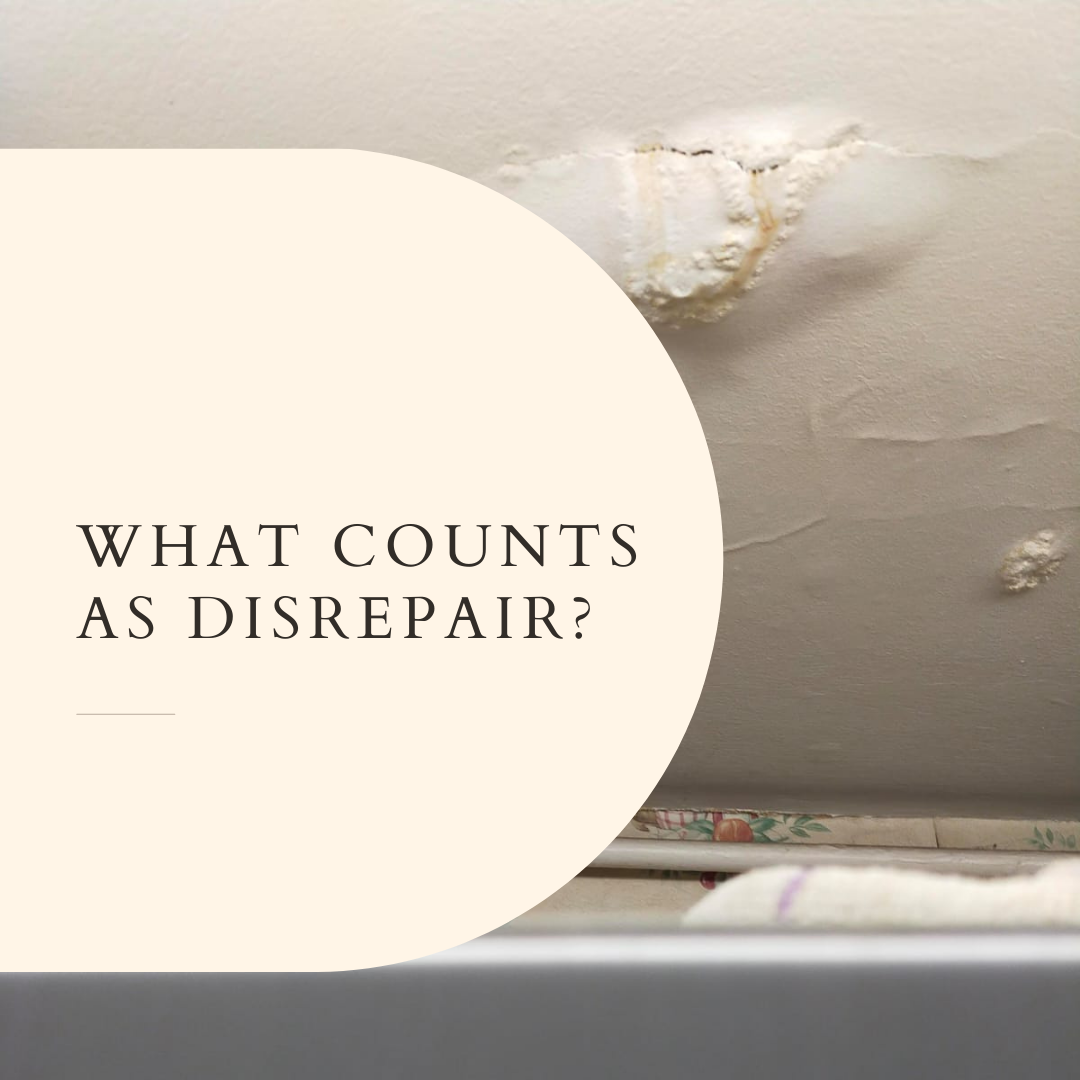What counts as disrepair? When it comes to rented properties, the issue of disrepair can be a contentious one. Landlords have a legal obligation to ensure that their properties are safe and habitable, but what counts as disrepair can vary depending on the situation. In this blog, we’ll explore what counts as disrepair in rental properties, and what steps tenants can take if they feel their landlord is not meeting their obligations.
Firstly, it’s worth noting that disrepair can refer to any damage or deterioration to a property that affects its safety or habitability. This can include issues such as damp, faulty wiring, leaky roofs, and broken heating systems, among others. If a property has any of these issues, it can impact the health and wellbeing of the tenant, and in some cases, can even be dangerous.
It’s also worth noting that landlords have a legal obligation to ensure that their properties meet certain standards. This includes the requirement to keep the property in a good state of repair, ensure that it is safe and free from hazards, and that it has adequate heating and hot water.
If a tenant believes that their property is in disrepair, the first step is to inform the landlord or managing agent in writing. This should include a clear description of the issue, as well as any relevant photographs or evidence. The landlord or agent should then respond within a reasonable time frame, and if necessary, arrange for repairs to be carried out.
If the landlord fails to respond or carry out necessary repairs, the tenant may have grounds to take further action. This could include contacting the local council’s environmental health department, who can carry out an inspection of the property and serve a legal notice on the landlord requiring them to carry out repairs. In more serious cases, tenants may also be able to take legal action against the landlord for breach of contract or negligence.
In summary, what counts as disrepair in rental properties can refer to any damage or deterioration that affects the safety or habitability of the property. Landlords have a legal obligation to ensure that their properties meet certain standards, and tenants have the right to take action if they feel their landlord is not meeting their obligations. By understanding their rights and taking the appropriate steps, tenants can ensure that their homes are safe, comfortable, and fit for purpose.
If you think we can help you in any way. Please feel free to contact us https://housingdisrepairadvice.org/contact
